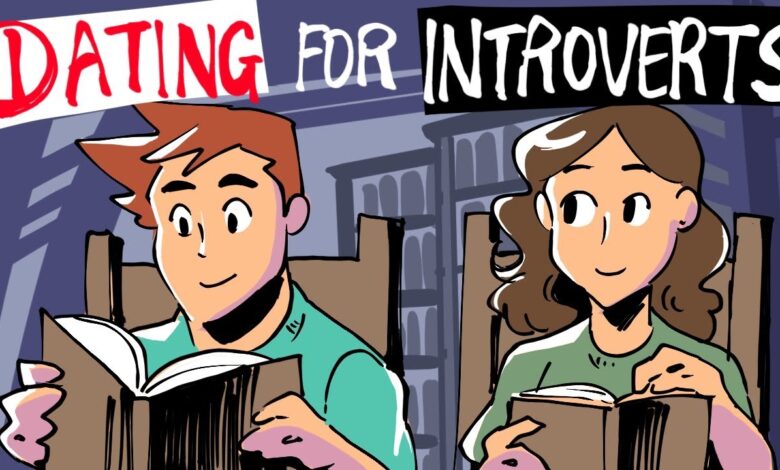
Introduction: The Quiet Struggle of Dating as an Introvert
For introverts, dating often feels like stepping onto a stage under a spotlight. The pressure to be witty, outgoing, and endlessly charming can feel exhausting. Society tends to celebrate extroverted qualities—loud laughter, bold confidence, and constant social energy—leaving introverts to believe they must “fix” themselves to find love.
But here’s the truth: you don’t need to become someone you’re not to attract the right partner. Introverts bring incredible strengths to relationships—deep listening, empathy, thoughtfulness, and loyalty. When used intentionally, these qualities can make you not only a good date but also an exceptional partner.
Research shows that introverts are often excellent at creating meaningful, long-term relationships because they value depth over small talk and genuine connection over superficial charm (Psychology Today). So instead of forcing yourself into the extrovert’s playbook, let’s explore how to embrace your natural strengths and win at love on your own terms.
1. Embrace Your Authenticity
Dating is nerve-wracking enough without the burden of pretending. Trying to act like an extrovert—louder, more social, or overly energetic—can backfire. It drains your energy and attracts people who may not value your true self.
Practical ways to embrace authenticity:
- Choose dates that align with your personality (quiet coffee shops, bookshops, art galleries).
- Be upfront about your introverted nature when comfortable—it’s not a weakness.
- Use your strengths: ask thoughtful questions, listen actively, and show genuine curiosity.
Authenticity fosters trust and filters out partners who won’t appreciate your true character.
2. Play to Your Strengths as a Listener
Introverts excel at listening—a skill many extroverts underestimate. In dating, listening goes a long way because it makes your date feel valued and understood.
Why it works:
- People enjoy being heard and validated.
- You catch details others might miss, which shows attentiveness later.
- It builds intimacy faster than trying to dominate the conversation.
👉 Example: If your date mentions loving hiking, you can later suggest a hiking trail instead of a noisy bar. That thoughtful follow-up sets you apart.
3. Choose Low-Stimulation Environments
Crowded bars or noisy clubs often feel overwhelming. Instead, opt for places where you can engage deeply without distractions.
Good introvert-friendly date ideas:
- A cozy café or tea house.
- A quiet park or botanical garden walk.
- A cooking or art class.
- Visiting a museum or bookstore together.
These settings let you connect meaningfully without draining your social battery.
4. Balance Comfort Zones with Small Challenges
While it’s crucial to stay authentic, growth often requires stretching slightly beyond comfort. Dating is about compromise between comfort and connection.
Tips for balance:
- Say “yes” to occasional social settings if your partner enjoys them.
- Use a “two-thirds rule”: spend two dates in comfortable settings, then one in a new one.
- Practice conversation starters in advance to feel more prepared.
Stepping slightly outside your bubble signals openness, without betraying your core self.
5. Online Dating Can Be Your Ally
Introverts often shine in writing. Online dating platforms allow you to express yourself thoughtfully before meeting in person.
Advantages for introverts:
- Time to craft meaningful responses instead of reacting instantly.
- Ability to filter matches based on shared values and interests.
- Reduced anxiety before meeting face-to-face.
Just ensure you don’t stay stuck in endless texting. Transition to real-world interaction once comfort is established.
6. Focus on Quality, Not Quantity
Unlike extroverts who thrive on variety, introverts prefer depth. It’s better to date fewer people with strong potential than to burn out on constant meetups.
Signs of quality over quantity:
- You leave dates feeling energized, not drained.
- Conversations flow beyond surface-level topics.
- Shared values align more than just hobbies.
Choosing fewer but more compatible partners prevents emotional exhaustion and fosters deeper bonds.
7. Communicate Boundaries Clearly
Boundaries aren’t walls; they’re bridges that show where respect begins. Communicating your needs is essential, especially as an introvert.
Examples of boundaries:
- “I need a quiet evening to recharge before our next outing.”
- “I prefer one-on-one settings over large group dates.”
- “I value slow pacing in relationships.”
Clear communication prevents misunderstandings and helps partners appreciate your rhythm.
8. Build Confidence Through Small Wins
Introverts often underestimate themselves in dating because they measure against extroverted standards. Confidence grows when you celebrate small wins.
Confidence-building ideas:
- Reflect on compliments from past relationships or friendships.
- Practice short conversations with strangers (cashiers, baristas).
- Remember: vulnerability is attractive, not a flaw.
Every small step compounds into stronger self-assurance.
9. Leverage Technology to Stay Connected
Texting, voice notes, or even sharing music playlists can be a lifeline for introverts who sometimes struggle with constant face-to-face contact.
Why it works:
- It allows space to process and respond.
- Maintains intimacy without overwhelming your social energy.
- Builds anticipation for the next in-person meeting.
Digital communication is not “lesser”—it’s simply another tool to build connection.
10. Know the Difference Between Alone Time and Avoidance
Introverts need alone time, but there’s a fine line between recharging and avoiding intimacy.
Healthy alone time looks like:
- Taking a quiet evening for yourself after a long week.
- Engaging in hobbies or reading to reset your energy.
Avoidance looks like:
- Cancelling multiple dates to dodge discomfort.
- Using “introversion” as a shield against vulnerability.
The key is balance. Alone time fuels you to be present, not absent.
Table: Introvert Dating Strengths vs. Misconceptions
| Introvert Strength | Misconception | Reality in Dating |
|---|---|---|
| Deep listening skills | Introverts are “boring” | Listening creates trust and intimacy |
| Thoughtful communication | Introverts are “shy” | Reflective responses show sincerity |
| Preference for smaller groups | Introverts are “antisocial” | Smaller settings build stronger bonds |
| Value quality over quantity | Introverts are “picky” | Choosing carefully fosters success |
| Need alone time | Introverts are “cold” | Time apart strengthens presence later |
This comparison highlights how introvert strengths can dismantle common dating stereotypes.
11. Don’t Compare Your Journey to Extroverts
Comparison kills confidence. Extroverts may go on 20 dates in a month, but that doesn’t mean they find deeper connections. Your path is different, and that’s okay.
Remember, introverts often build fewer but more meaningful relationships—exactly what long-term love requires.
12. Choose Partners Who Value Depth
For introverts, the real challenge in dating isn’t starting conversations or even going on dates—it’s choosing the right person. You can bring your best qualities—empathy, loyalty, attentiveness—to the table, but if your partner doesn’t value depth, those qualities may be overlooked or dismissed.
A relationship where your quiet nature is seen as a weakness instead of a strength will eventually feel draining. That’s why choosing a partner who genuinely values meaningful connection is essential. It’s not about finding someone perfect—it’s about finding someone who sees you clearly and appreciates what you bring to the relationship.
Why Depth Is So Important
Introverts thrive on meaningful connection. While small talk and surface-level attraction have their place, they don’t sustain a long-term bond. For introverts, love feels fulfilling only when it’s rooted in honesty, shared values, and conversations that go beyond the weather or last night’s TV show.
A partner who values depth will:
- Appreciate your reflective nature instead of pressuring you to be louder.
- Understand that silence often means comfort, not distance.
- Enjoy one-on-one time just as much as group outings.
- Cherish thoughtfulness and loyalty over grand gestures.
Studies show that relationships built on shared values and deep emotional connection tend to last longer and feel more satisfying than those based only on initial attraction (Greater Good Science Center).
Red Flags: When They Don’t Value Depth
Not everyone will understand introversion—and that’s okay. The problem arises when someone actively dismisses or minimizes it.
Warning signs include:
- Mocking or guilt-tripping you for needing alone time.
- Dominating conversations without listening to your input.
- Pushing you into noisy, high-energy settings with no compromise.
- Treating your quiet personality as something to “fix.”
Dating someone who doesn’t value depth forces you into constant performance. Instead of feeling loved, you end up feeling unseen.
Green Flags: What to Look For
The right partner doesn’t just tolerate your introversion—they treasure it.
Signs of compatibility include:
- They respect your need for space and never make you feel guilty for it.
- They’re curious about your thoughts and listen actively.
- They enjoy slow, meaningful conversations more than endless chatter.
- They balance their social energy with your quieter pace.
- They admire your loyalty, consistency, and grounded nature.
Such partners bring harmony into your life. They don’t try to change you—they complement you.
Practical Steps for Choosing the Right Partner
- Be Honest Early On
Don’t hide your introversion in the hope of being more appealing. If you prefer cozy cafés over loud clubs, say it. Authenticity filters out mismatches. - Test Their Respect for Boundaries
Notice how they react when you ask for alone time or decline an event. A respectful response signals emotional maturity. - Observe Their Communication Style
Do they engage when you share something personal, or do they brush past it? Someone who values depth will meet you where you are. - Check Their Social Rhythm
If their entire lifestyle revolves around constant parties, you may face long-term conflict. Compatibility lies in balance. - Look for Reciprocity
You shouldn’t be the only one adjusting. The right partner will also compromise, meeting you halfway.
A Story That Shows the Difference
Take Emma, an introvert who dated a man who loved nightlife. At first, she tagged along to keep him happy, but she quickly burned out. When she asked for quieter evenings, he dismissed her, saying she was “boring.”
Months later, she met David, who enjoyed socializing but also valued quiet dinners and meaningful talks. David didn’t see her introversion as a limitation—he saw it as grounding and stabilizing. That balance made Emma feel appreciated instead of pressured. Their relationship thrived because her depth was an asset, not a liability.
Table: Depth-Valuing Partners vs. Surface-Oriented Partners
| Partners Who Value Depth | Partners Who Don’t Value Depth |
|---|---|
| Respect your need for alone time | Criticize you for needing space |
| Appreciate meaningful conversations | Prefer constant small talk |
| Celebrate thoughtfulness and loyalty | Mock you for being “too serious” |
| Balance social energy with quiet time | Push for nonstop socializing |
| See introversion as a strength | Treat introversion as a flaw |
How to Attract Depth-Loving Partners
Introverts often underestimate their ability to attract the right people. The truth is, when you embrace your authentic self, you naturally draw those who respect it.
Ways to attract the right partner:
- Be transparent in dating profiles: “I love quiet cafés more than crowded clubs.”
- Join communities that value authenticity (book clubs, volunteering, creative workshops).
- Practice self-confidence—when you value yourself, others are more likely to value you too.
Choosing a partner who values depth is not just a dating strategy—it’s a self-preservation strategy. Without it, you’ll always feel pressured to perform. With it, you’ll thrive in a relationship where your natural strengths—listening, empathy, thoughtfulness—become the glue that holds love together.
The right partner won’t just accept your quiet nature. They’ll fall in love with it. And that’s how introverts win at love—without changing who they are.
Conclusion: Winning at Love as an Introvert
You don’t need to fake extroversion to succeed in dating. You win at love by being unapologetically yourself—thoughtful, authentic, and quietly powerful.
By choosing the right settings, valuing quality over quantity, and communicating your needs, you create space for the kind of partner who loves you as you are.
In the end, introversion isn’t a barrier to romance—it’s a secret strength. When used wisely, it makes you the type of partner who not only wins love but sustains it.








